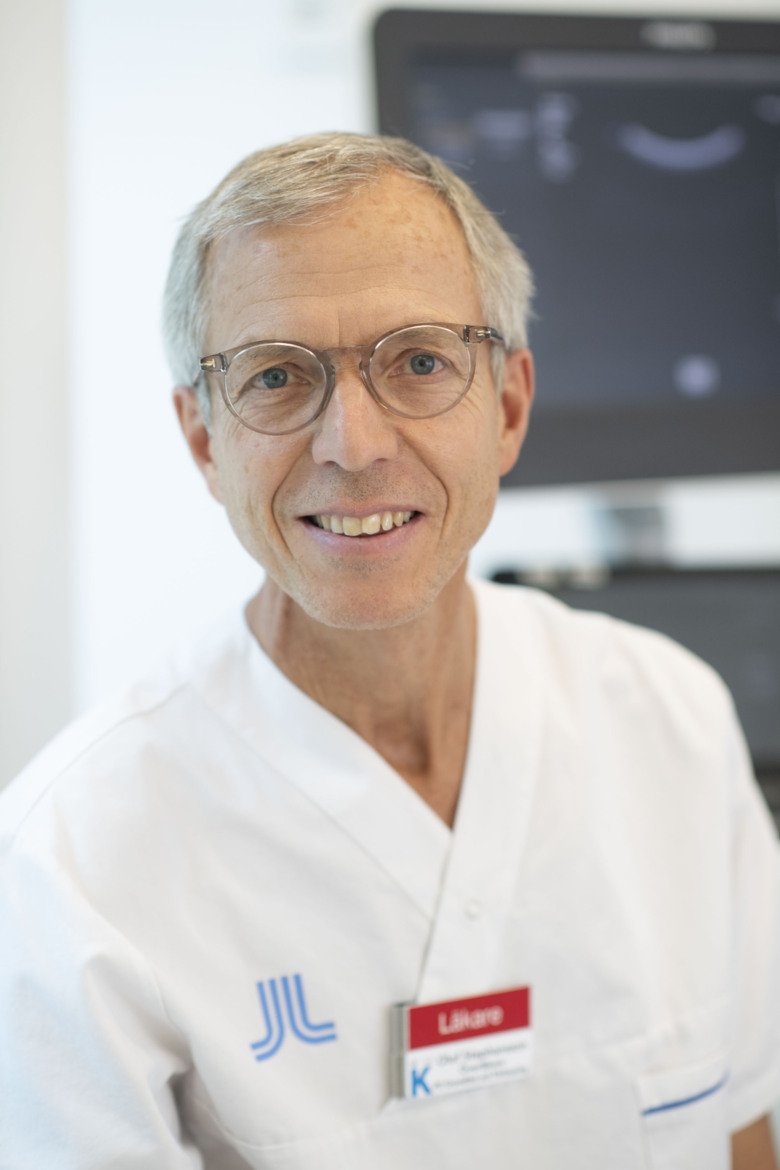Making pregnancy and childbirth safer
Olof Stephansson researches the risks for mother and baby during and after childbirth. Amongst other achievements, he has been able provide reassurance about the risks linked to bariatric surgery, antidepressants and COVID-19 infection in connection with pregnancy.

What are you researching?
“My objective as both a doctor and a researcher is to make pregnancy and childbirth safer for both mother and baby. We have a strong tradition with this in Sweden and a generally low level of risk for most pregnancies and deliveries. But for some patient groups, the risks are much higher, and our research focuses mainly on these women. We’re also researching which drugs are safe to take during pregnancy.”
What does your research actually involve?
“We mainly do epidemiological research based on national health registries, healthcare quality registries like the Pregnancy Register and data from digital medical records systems. In Sweden and Scandinavia, we’re uniquely well-equipped to do this kind of research. There are also better and better statistical methods that can help us make our registry data similar to randomised studies. The risk factors we’re studying include chronic diseases like diabetes and rheumatism, age of parents and obesity and bariatric surgery."
"We’ve shown, for instance, that bariatric surgery generally entails much lower risks for both mother and baby than if the mother has not lost weight. In Sweden, more than 1,000 babies a year are born of women who have undergone such an operation, so I count that as one of our most important findings.”
What other discoveries have you made?
“Another important finding for many pregnant women is that antidepressant SSRI drugs are safe to take. I’m also proud of the fact that relatively early during the pandemic, we were able to elucidate the perinatal risks for babies of women who had COVID-19 while pregnant. There was considerable anxiety back then about this, and rather drastic measures were suggested, such as to induce childbirth prematurely, to advise against breastfeeding and to separate mother and baby after birth. We were able to show that for women with mild COVID-19 infection, the risks were so low that none of this was warranted.”
About Olof Stephansson
Professor of Clinical Epidemiology, focusing on Obstetrics-Gynaecology at the Department of Medicine, Solna
Olof Stephansson was born in Uppsala in 1966. He took his medical degree at Uppsala University in 1995, obtaining his PhD at KI in 2002. After his postdoc training at KI between 2007 and 2009, Stephansson was made docent in 2010. From 2015 to 2016 he was visiting researcher at the University of California, Berkeley, USA. In 2016, he was made senior researcher at KI.
As a clinician, Stephansson worked as a junior doctor at Stockholm South General (Söder) Hospital from 1997 to 1998, and since 2002 has been primarily based at Karolinska University Hospital, where he is currently a consultant. He became a specialist in obstetrics and gynaecology in 2007, and from 2010 to 2012 he was a consultant at Visby Hospital.
Olof Stephansson was appointed Professor of Clinical Epidemiology at Karolinska Institutet on 1 July 2021.
Text: Anders Nilsson
First published in the booklet From Cell to Society 2021
